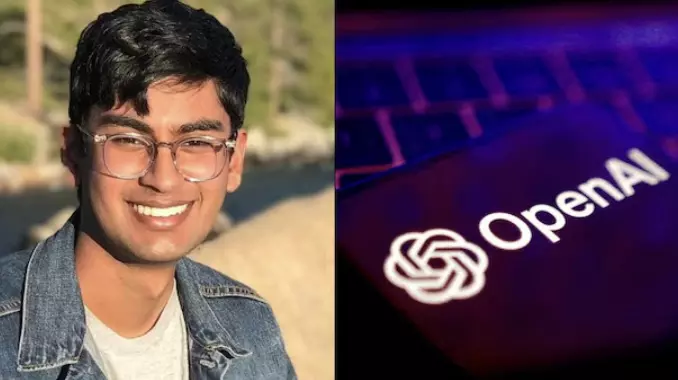Did Suchir Balaji Commit Suicide? New crime scene photos raise questions about OpenAI whistleblower's death
Did Suchir Balaji Commit Suicide? New crime scene photos raise questions about OpenAI whistleblower's death

The tragic death of Suchir Balaji, a former OpenAI employee turned whistleblower, continues to spark intense debate. Found lifeless in his San Francisco apartment in November, police ruled it a suicide. However, his grieving parents believe their son was murdered and are calling for an FBI investigation.
Balaji, who had raised ethical concerns about OpenAI’s practices, was discovered in his one-bedroom apartment on Buchanan Street. Photos from the crime scene, obtained by the Daily Mail, depict a disturbing scene that his parents argue contradicts the official suicide ruling.
Parents Demand Answers
Balaji’s parents, Poornima Ramarao and Balaji Ramamurthy, insist their son’s death was no suicide. With the help of private investigators and forensic experts, funded by a $85,000 campaign, they aim to prove foul play.
Tesla CEO Elon Musk has also voiced concern, labeling the allegations against OpenAI as "extremely troubling."
The Crime Scene
Graphic photos show blood pooled near the bathroom, splattered across the tiles and walls, and even on a cabinet. Two tufts of synthetic hair and one of Balaji’s wireless earbuds were found stained with blood. His apartment appeared ransacked, with signs of disarray suggesting a struggle.
A private forensic expert, Dr. Dinesh Rao, described the police investigation as “incomplete and inadequate.” Rao’s preliminary report included dozens of photos highlighting overlooked evidence, such as fake hair strands and blood-stained earbuds.
Rao’s analysis indicated signs of resistance, with blood patterns suggesting Balaji may have crawled or struggled before succumbing to his injuries.
Private Autopsy Findings
Balaji’s mother revealed shocking details from a private autopsy, showing her son had been shot. The bullet entered above his nose and lodged at the back of his skull, missing the brain entirely. The autopsy also revealed a second trauma wound, likely from blunt force.
The timeline of events suggests Balaji may have been attacked while brushing his teeth. His parents believe he resisted his attacker, was pulled to his knees, and then shot—leaving him to bleed to death at the bathroom door.
Balaji’s legally purchased Glock pistol was found near his body. However, inconsistencies in the placement of the gun and missing ammunition have added to the doubts surrounding the police’s conclusions.
Whistleblower and the OpenAI Link
Before his death, Balaji had publicly accused OpenAI of training its AI models on copyrighted material scraped without permission. In an interview with The New York Times, he criticized the company’s ethical practices and hinted at possessing incriminating evidence.
Balaji’s parents allege that their son’s apartment was ransacked by his killer in search of this evidence.
Final Phone Call
The last known conversation with Balaji was a phone call with his father on November 22. “He sounded happy,” Ramamurthy recalled. “There was no sign of depression. He said, ‘I’m going for dinner, I’ll talk to you later.’”
A Call for Justice
Balaji’s parents continue to fight for the truth, urging federal authorities to investigate. The mystery surrounding his death remains unresolved, with growing calls for justice for the whistleblower who dared to speak out against one of the world’s leading AI companies.
As the investigation unfolds, this case has highlighted the risks whistleblowers face when challenging powerful organizations—and the need for accountability in uncovering the truth.

